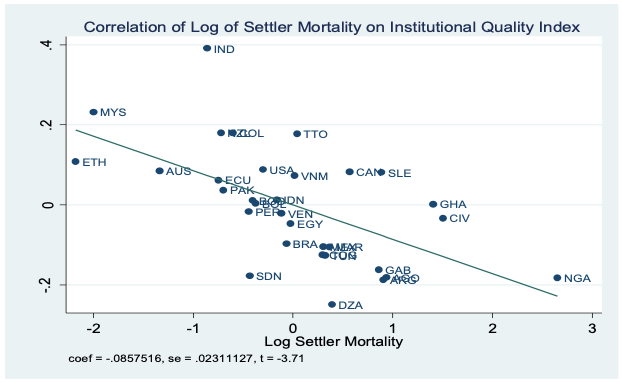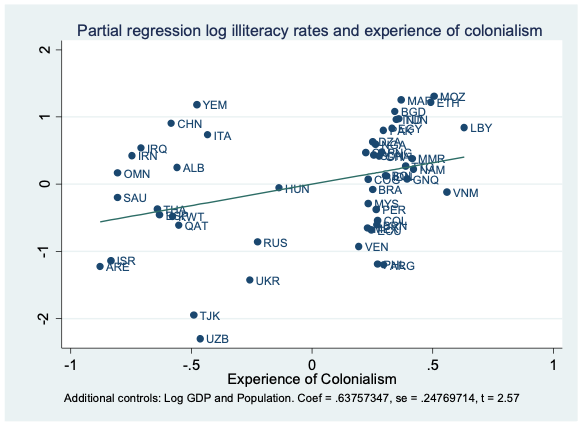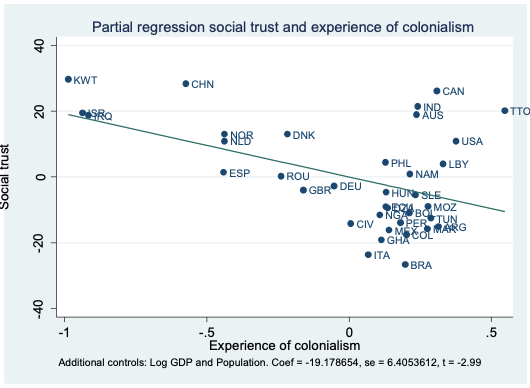Colonialism, institutional quality and the resource curse
by Jubril Animashaun (University of Manchester)
This blog is part of a series of New Researcher blogs.
—
Why are so many oil-rich countries characterised by slow economic growth and corruption? Are they cursed by the resource endowment per se or is it the mismanagement of oil wealth? We used to think that it is mostly the latter. These days, however, we know that it is far more complicated than that: institutional reform is challenging because institutions are multifaceted and path-dependent.
A primary objective of European colonialism was to expand the economic base of the home country through the imposition of institutions that favoured rent-seeking in the colony. If inherited, such structures can constitute a significant reason for the resource curse and why post-colonial institutional reform is hard. Following this argument, post-colonial groups that benefitted from the institutional system may be able to reproduce this system after independence.
Our study finds support for this argument in oil-rich countries. This suggests the enduring impact of the sixteenth to nineteenth century European colonial practices as an obstacle to institutional reforms in oil-rich countries today.
We come to this conclusion by investigating the changes in economic development over the period 1960-2015 in 69 countries. Our results show that the variation in economic development over these 45 years can be explained to a large extent by institutional quality and oil abundance and their interaction. Our findings are unchanged after controlling for countries that became independent after 1960 (many former Portuguese colonies are in this category).
In our study, we define colonial experience if an oil-rich country had European colonial settlement (for example, settler mortality records) and/or if any of the colonial European languages (English, French, Spanish, etc.) persist as official post-independence language. Persistence of the colonial language helps to distinguish colonies based on the depth of colonial economic engagement.
We further capture colonialism with a dummy variable to reduce the measurement error with estimates of both settler mortality and language. Institutions are measured as the unweighted averages of executive constraints, expropriation risk and government effectiveness (institutional quality index).

It is important in our kind of research to distinguish the impact of colonial legacy from the pre-colonial conditions in the colonised states to validate our result. This is because places with sophisticated technologies could have resisted colonial occupation, and such historical technologies may also have a persistent long-term effect. As our sample comprises countries with giant oil discoveries, and because oil discoveries did not drive the sixteenth to nineteenth century European colonialism, our findings rule out other backdoor effects of colonial and pre-colonial impact on current performance.

We find a significant gap in illiteracy levels between colonised and non-colonised countries. We also find that countries with colonial heritage have less trust. We suggest that to reverse the resource curse, higher priorities should be placed on investment in human capital and education. These will boost citizens’ ability to demand accountability and good governance from elected officials and improve the quality of discourse on civic engagement on institutional reforms.


